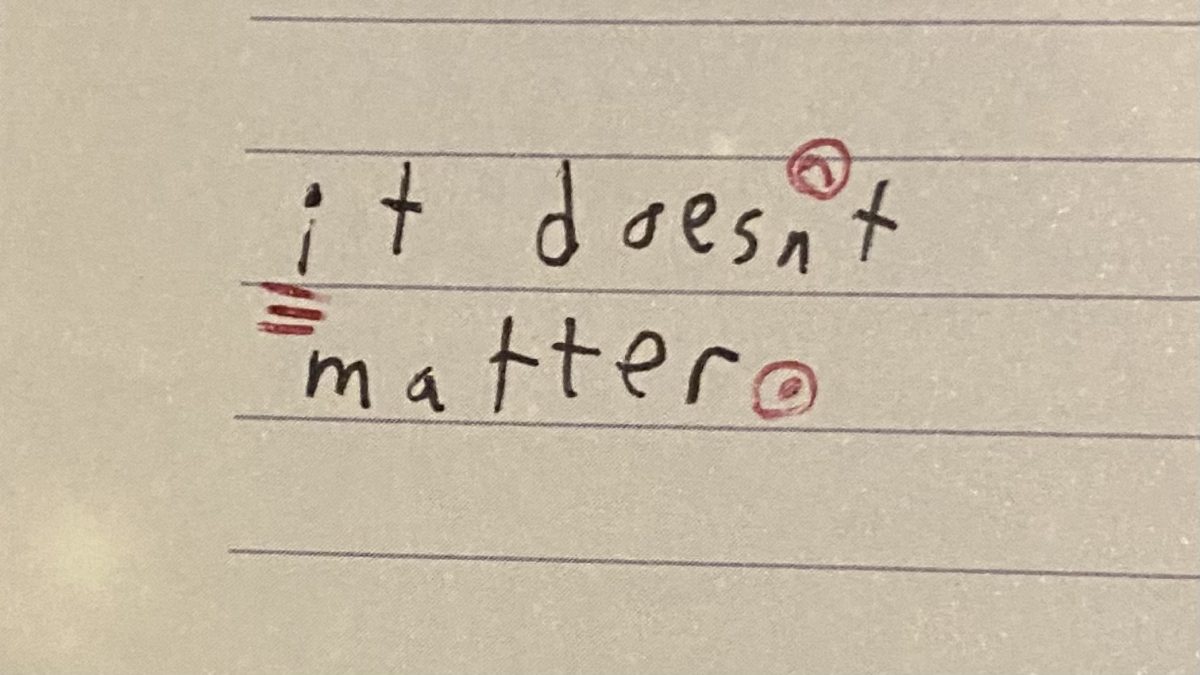In my life, I have often been described as pretentious. Mostly by myself, but I do get the feeling that it’s the impression I give to people around me. I correct people on grammatical and factual errors, even in casual conversations. I myself try my best to maintain what I’ve been raised to think of as “proper grammar,” regardless of the situation. I will pronounce “caramel” with three syllables despite the ridicule that inevitably follows. The question I ask, then, is “why?” Why do I care so much about these stupid little intricacies even though, logically, I know it doesn’t matter?
First of all, it doesn’t matter. The specifics and mechanics of grammar and pronunciation have no effect on the day-to-day lives of most people. I’m not going to say these things are completely useless in all fields (I am, after all, a newspaper editor), but in casual conversation, they are inconsequential. The average person will not suffer any consequences for ending a sentence with a preposition, having an indefinite subject or using “who” when they should have used “whom.”
So why do people like myself place so much importance on the minuscule mechanics of a language that is flawed and inconsistent at its core? In part, I think it has to do with pride. If someone believes something to be right, grammatically or otherwise, they will want to continue to do it. Speaking from personal experience, I do feel a bit of intellectual superiority when correcting people on their grammar. I was right, they were wrong. I’m not entirely proud of it, but it does feel good.
This is something I am in the process of working through. I don’t want to be a smug know-it-all, I just can’t always help it. Sometimes it just slips out. And there’s not necessarily anything wrong with grammar. It certainly gives the appearance of intelligence. Correcting the grammar of others, though, gives the appearance of snobbery.
Lately I’ve tried to simply let things slide. I try to maintain so-called proper grammar, but I avoid correcting other people. I pronounce “Studio Ghibli” with a soft “G,” but don’t mind people who use a hard one (even though it’s definitely incorrect).
Even in my own writing and speaking, I’ve become more casual. I know it’s technically improper to end a sentence with a preposition, but I also know it’s insanely clunky to use the phrase “with which” in everyday conversation. While I don’t see myself changing my own grammatical habits in the near future, I will certainly make an effort to stop trying to change the habits of others.



